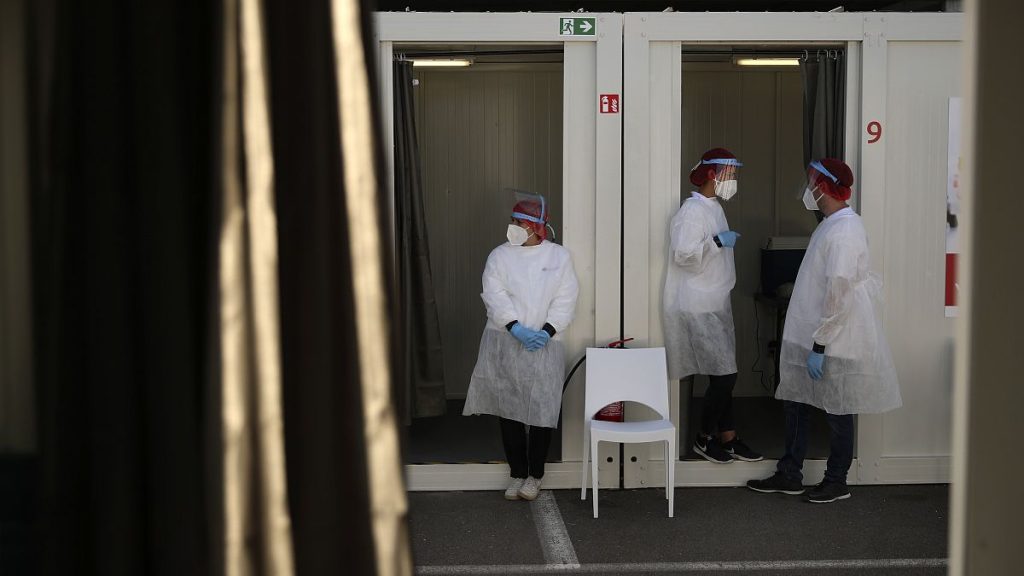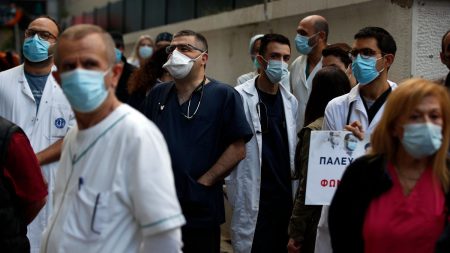A recent report from the European Commission and the Organisation for Economic Co-operation and Development (OECD) evaluates the capacity of European countries to respond to health crises, revealing that readiness has barely improved since the COVID-19 pandemic. The pandemic highlighted the inadequacies within the European Union’s health systems, evidencing that domestic health threats could escalate into global emergencies. The new report assesses various health metrics, including crisis preparedness, compliance with international health norms, vaccination rates among older citizens, public trust in government regarding health initiatives, and readiness against antimicrobial resistance (AMR). Though most EU nations are somewhat equipped to manage future health challenges, persistent issues identified during the pandemic continue to pose significant risks.
The report indicates that 78 percent of EU countries comply with the World Health Organization’s (WHO) international health regulations aimed at curbing infectious disease spread globally. This figure, however, shows little change from the 75 percent that complied in 2020. Scandinavian nations lead in adherence to these health regulations, followed closely by countries like France, Lithuania, and Germany. Conversely, Romania, Greece, and Slovakia rank lowest in compliance, although improvements were noted in countries like Poland, the Czech Republic, and Malta between 2020 and 2023. While the overall capacity for disease surveillance, laboratory readiness, and workforce resources is commendable among EU states, significant gaps remain, notably in public messaging and emergency preparedness for chemical or radiological incidents stemming from either accidents or terrorism.
Antimicrobial resistance (AMR) presents a critical public health challenge, resulting from pathogens adapting and rendering antibiotics ineffective, which is worsened by antibiotic overuse and substandard infection management in healthcare facilities. In the EU, approximately 800,000 antibiotic-resistant infections and over 35,000 deaths occur each year. Although European countries generally perform well in AMR readiness, the report indicates a need for advancements in diagnostic testing and ongoing AMR surveillance. There is also a notable disparity in both antibiotic consumption and resistance rates across the continent. As of 2022-2023, 32 percent of tested bacteria specimens across the EU displayed resistance to primary antibiotics, with particularly high resistance rates exceeding 50 percent observed in Romania, Greece, Cyprus, and Bulgaria.
Vaccines play a vital role in preventing infectious diseases, especially among vulnerable populations such as older adults. During the COVID-19 pandemic, countries with robust vaccination campaigns experienced fewer excess deaths. While the initial uptake of COVID-19 vaccines among older adults was high by late 2021, the report notes that booster vaccination rates vary significantly across the EU and that influenza vaccination rates have fallen compared to the heightened interest seen during the pandemic. Essential challenges affecting vaccine uptake include access to vaccines and public apprehensions regarding their safety, stressing the importance of instilling trust in health measures for effective crisis management.
Public trust in health readiness significantly influences individuals’ compliance with health directives during crises. The report highlights that distrust can lead to public noncompliance, inciting social unrest, and ultimately negatively impacting health outcomes. Such distrust can also perpetuate a negative cycle, where governments struggling to manage health crises subsequently lose citizen confidence. Among 19 EU countries surveyed, 52 percent of respondents expressed confidence in their government’s capability to handle a major health emergency, while 31 percent doubted this ability. Finland, the Netherlands, and Denmark were noted to have the highest levels of public confidence, in stark contrast to lower confidence levels reported in Latvia, Portugal, and Greece.
In summary, the findings of this report underscore the ongoing vulnerabilities in the European healthcare system, particularly in the wake of the COVID-19 pandemic. While some improvements have been made regarding compliance with international standards and AMR preparedness, substantial gaps remain, especially in the areas of public communication and emergency preparedness. Vaccination rates among vulnerable populations display significant inconsistencies and highlight the critical necessity for addressing public perceptions of safety and accessibility. Furthermore, the analysis of public trust illustrates the profound impact of government performance during health emergencies on citizens’ confidence, indicating that the management of health crises extends beyond tactical responses to encompass a broader commitment to building and maintaining public trust. Overall, the report urges EU nations to consolidate efforts to fortify their public health infrastructures and initiate sustainable strategies to better prepare for future health crises.














